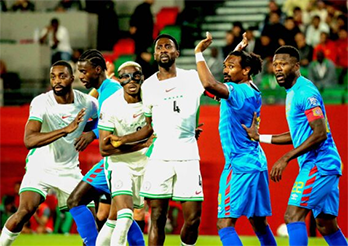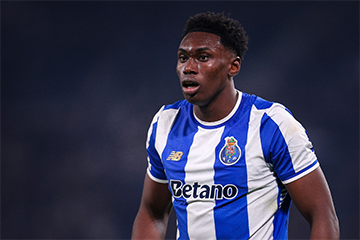World Cup
Chelsea Owner, Abramovich dragged into World Cup Scandal
Like wild fire, the flames coming out of the release of dirty deals that were involved in the award of World Cup 2018 and 2022 is spreading beyond those directly involved in governing football globally.
Chelsea owner, Roman Abramovich was on Tuesday night dragged into the scandal when the hitherto hidden 403 page report of former independent ethics investigator Michael Garcia, was released after it leaked to a German publication, Bild.
According the report, a football foundation linked to the Chelsea owner “destroyed” computers used by Russia’s bid team for next year’s tournament.
The 39-page findings of an investigation into the country’s successful attempt to land the game’s biggest event confirmed that Russia 2018 leased computers from the Konoplyov Football Academy, the administration of which had been taken over by Abramovich’s Academy of Football in 2006.
A summary of the report published in November 2014 said the bid committee had made “only a limited amount of documents available for review” by investigators after those computers were destroyed upon being returned to their owner.

World Cup
Nigerians Resume Vigil as Fresh Wait for FIFA Verdict Begins

By Kunle Solaja.
Nigerians on Tuesday began yet another anxious wait for a ruling from FIFA on the protest filed by the Nigeria Football Federation (NFF) against the DR Congo Football Federation over the 2026 World Cup qualifying play-off.
Monday had been widely anticipated in football circles as “decision day,” but it ended in confusion, with conflicting and fake reports flooding social media platforms and some online outlets.
Throughout the day, unverified claims swung both ways, with some reports suggesting Nigeria had won the case and would be reinstated, while others alleged that FIFA had dismissed the protest. By late evening, however, no official statement had been issued by FIFA.
The source of information that a decision was to be made on Monday, 16 February not yet been verified as FIFA did not make any public statement regarding this.
Meanwhile, the intercontinental play-off is slated to begin on 26 March and end on the 31st in Mexico.
The NFF was reported to have dismissed the circulating claims, describing them as unfounded insinuations and reiterating that only an official communication from FIFA would clarify the situation.
The absence of a formal announcement created a vacuum quickly filled by speculation. Graphics purporting to show “FIFA verdicts” and fabricated disciplinary summaries were widely shared, deepening public uncertainty.
Observers note that FIFA’s judicial processes are not typically bound to publicly declared timelines, and decisions are often communicated directly to the parties involved before any broader release.
With no confirmation from Zurich, attention has now shifted to Tuesday, as supporters of the Super Eagles monitor developments for clarity.
What Is at Stake
Nigeria’s protest challenges the eligibility of certain DR Congo players who featured in the decisive African play-off match, which ended 1–1 before DR Congo triumphed 4–3 on penalties.
If FIFA rules in Nigeria’s favour, the Super Eagles could be reinstated into the intercontinental play-off tournament scheduled for March 2026 in Mexico, a final pathway to the World Cup. A dismissal, however, would end Nigeria’s hopes of qualification through the play-off route.
Beyond sporting consequences, the outcome carries financial and reputational implications for Nigerian football, including potential revenue from participation and global exposure.
Another Day of Waiting
As Tuesday unfolds, the mood remains one of cautious anticipation rather than certainty. After Monday’s swirl of misinformation, many fans and stakeholders are adopting a wait-for-official-word stance.
For now, Nigeria’s World Cup fate hangs in administrative suspense — pending a decision that only FIFA can deliver.
Join the Sports Village Square channel on WhatsApp: https://whatsapp.com/channel/0029Vaz7mEIGk1FxU8YIXb0H
World Cup
Nigeria Waits in Vain as Uncertainty Clouds NFF Protest Against DR Congo

By Kunle Solaja.
In echoes of Waiting for Godot, the absurdist classic by Irish playwright Samuel Beckett, Nigerians spent Monday in anxious anticipation of a verdict that never came. As of 6 pm in Nigeria, which is the same as the winter time in Switzerland, the home office of FIFA has no information. Official hours have already ended.
Across social media platforms, radio stations and football circles, February 16 had been widely assumed to be “judgment day” in the protest lodged by the Nigeria Football Federation (NFF) against the DR Congo Football Federation (FECOFA) over alleged player ineligibility in the decisive African play-off for the 2026 World Cup.
Yet by nightfall, there was no official communication from FIFA, no confirmation of a ruling, and no clarity on how the date had become associated with a final decision.
The Substance of the Protest
The NFF’s petition, formally filed on December 15, 2025, challenges the eligibility of at least six DR Congo players who featured in the November 2025 African play-off final in Rabat, Morocco. Among those specifically named are Aaron Wan-Bissaka and Axel Tuanzebe, both of whom have previously represented England at youth levels before switching international allegiance.
Nigeria’s argument rests on two principal pillars:
- Irregular switches of nationality: The NFF questions whether the players’ changes of international allegiance complied fully with FIFA’s statutes governing eligibility.
- Dual citizenship concerns: Nigeria further contends that the players hold European passports, which it claims conflicts with Congolese nationality laws prohibiting dual citizenship, and alleges that clearances may have been secured through misrepresentation.
The match itself ended 1–1 after regulation time, with DR Congo prevailing 4–3 on penalties, thereby eliminating the Super Eagles from the African pathway to the 2026 World Cup.
FECOFA has firmly denied the allegations, insisting that the players satisfied FIFA’s connection requirements and were lawfully issued Congolese documentation.
Legal Complexity Beyond the Pitch
At the heart of the dispute lies a familiar tension between domestic nationality laws and FIFA’s eligibility framework.
Under FIFA regulations, players may switch national associations if they meet defined criteria related to ancestry, birthplace, or residency, and provided they have not been cap-tied at senior competitive level.
However, FIFA’s system does not automatically defer to the internal citizenship restrictions of sovereign states in the same manner as national courts might.
This creates a grey area: even if a country’s constitution restricts dual nationality, the determining authority for international football eligibility remains FIFA’s Players’ Status Committee and, where necessary, the FIFA Disciplinary Committee.
Legal analysts note that for Nigeria to prevail, it would need to demonstrate not only inconsistencies in domestic law but also procedural breaches within FIFA’s transfer-of-association process, a far higher evidentiary threshold.
Should FIFA rule in Nigeria’s favour, the consequences would be seismic.
The Super Eagles could be reinstated into the Intercontinental Play-off tournament scheduled for next month in Mexico. In that event, Nigeria would likely face the winner of the Jamaica versus New Caledonia fixture for a final berth at the 2026 World Cup.
Such a ruling would not only alter the competitive landscape but also carry significant financial and reputational implications. Participation in the intercontinental play-off offers substantial revenue opportunities and the prospect of global exposure ahead of a World Cup jointly hosted by the United States, Canada and Mexico.
Conversely, a dismissal of the protest would close Nigeria’s last competitive route to the tournament, intensifying scrutiny of administrative and technical decisions that led to elimination on the field.
For now, uncertainty prevails.
The absence of official confirmation regarding any verdict underscores the opaque nature of football’s judicial processes, where timelines are rarely publicised and rulings often emerge without advance notice.
As Monday ended without resolution, the atmosphere mirrored Beckett’s enduring metaphor — anticipation without arrival.
For Nigeria, the question remains not only whether justice will be served, but when — and in whose favour.
Join the Sports Village Square channel on WhatsApp: https://whatsapp.com/channel/0029Vaz7mEIGk1FxU8YIXb0H
World Cup
World Cup Blow for Nigerian-Descendant Spain Star, Aghehowa

The dream of Nigerian-descent forward Samu Aghehowa featuring for Spain at the forthcoming FIFA World Cup has been dealt a major setback after the 21-year-old suffered a serious knee injury while playing for Portuguese giants FC Porto.
Aghehowa is expected to be sidelined for several months after rupturing his anterior cruciate ligament during Porto’s 1–1 draw with Sporting CP on Monday. The injury is set to rule him out for the remainder of the season and cast serious doubt over his availability for the World Cup in North America, which kicks off on June 11.
Born in Melilla to Nigerian parents, Aghehowa has been one of Europe’s rising young forwards. He has featured twice for Spain during their World Cup qualifying campaign and was widely regarded as a strong contender for a place in the squad for the global showpiece.
The striker, who won a gold medal with Spain at the Paris 2024 Olympic Games, joined Porto from Atlético Madrid in August 2024 and has enjoyed a prolific spell in Portugal, scoring 32 league goals in just 50 appearances.
Confirming the setback, Aghehowa wrote on social media: “I’ll be out of action for a few months. It hurts me not being able to help the team as I’d like, fighting on the field. Now I’m just another fan supporting us towards our goals.”
For Nigerian football followers, the injury will spark renewed conversations about dual-nationality talents of Nigerian heritage making their mark abroad. While Aghehowa has already represented Spain at the senior level, his rapid rise has continued to attract attention back home, where fans closely monitor the progress of players with Nigerian roots across Europe.
With his recovery timeline uncertain, the immediate focus will be on successful surgery and rehabilitation. Whether he can beat the clock to feature at the World Cup now appears increasingly unlikely, turning what had been a breakthrough year into a period of rehabilitation and resilience for one of Europe’s brightest young strikers.
Join the Sports Village Square channel on WhatsApp: https://whatsapp.com/channel/0029Vaz7mEIGk1FxU8YIXb0H
-

 feature1 week ago
feature1 week agoFederal Government Reaffirms Commitment to Federal Character Principle
-

 Badminton6 days ago
Badminton6 days agoNigeria’s Bolaji Reaches World Championship Final as Nnanna Claims Historic Bronze
-

 World Cup3 days ago
World Cup3 days agoNigeria Waits in Vain as Uncertainty Clouds NFF Protest Against DR Congo
-

 Nigerian Football1 day ago
Nigerian Football1 day agoWhen Referees Decide the League: A System That Is Failing Nigerian Football
-

 WOMEN'S FOOTBALL1 week ago
WOMEN'S FOOTBALL1 week agoBrazil Marks 500-Day Countdown to FIFA Women’s World Cup 2027
-

 Uncategorized6 days ago
Uncategorized6 days agoEgypt’s Supreme Council of Sufi Orders Recognises Akbariyya Hatimiyya Order
-

 Athletics5 days ago
Athletics5 days agoKenya’s Kipchumba Wins Big as East Africans Dominate 11th Access Bank Lagos City Marathon
-

 AFCON1 week ago
AFCON1 week agoAFCON Calendar Headache Set to Dominate Friday’s CAF Executive Meeting in Tanzania



